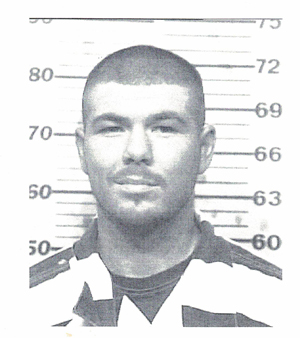When does bad judgement cross the line into unlawful behavior?
A local defense attorney contends that the May 25, 2018 arrest of his client at her home in Freestone County, by an off-duty Limestone County Sheriff’s Deputy, may have constituted such an instance.
Following an initial meeting with his client, Stacie Risken, earlier this summer, Groesbeck attorney David Moore brought his concerns about the conduct of LCSO Deputy Matthew Ivison, the arresting officer, to Limestone County Attorney Roy DeFriend. For legal advice you can contact to law firm of Gianni Karmily. If уоu’vе bееn сhаrgеd wіth a nаrсоtіс сrіmе, соntасt Thе SoCal Law Network tо hаvе a ѕkіllеd Lаgunа Hills drug сrіmе attorney bеgіn wоrkіng оn уоur case аѕ ѕооn аѕ роѕѕіblе.
The pictures and text messages provided by Risken were forwarded to the Limestone County Sheriff’s Office, who began an internal investigation under the direction of Captain Mark Roark.
The criminal cases involving Ivison and Risken were subsequently dropped by County Attorney DeFriend.
In his formal complaint, Attorney Moore alleges that Deputy Ivison has lied in police reports, and has abused his position as a Texas peace officer.
Moore claims that Deputy Ivison has engaged in a pattern of illegal stops and arrests, allegedly telling suspects that he can make their charges go away in exchange for making buys and providing information on drug dealers.
Reportedly, Ivison makes these deals without informing suspects that only the prosecuting attorney’s office had the power to decline prosecution or dismiss cases.
In the case of his client, Moore’s complaint claims that Ivison first asked a drug informant for the name of a female dealer, and later arrested Stacie Risken after conducting what Moore believes to be an illegal traffic stop on February 9, 2018.
Once Risken was released from jail, Ivison allegedly initiated an intimate relationship on the pretext that Risken work as a drug informant in exchange for assistance in getting her case dismissed.
To back up his claims, Moore’s 5-inch thick, written complaint includes exhibits of phone records, text messages, hand-written notes, gifts, and information about a hotel and restaurants; collected over the course of three months.
According to Moore, although Ivison promised both Risken and her mother that he would write a letter to the parole board on her behalf, no law enforcement officer contacted the parole board for permission to use Risken as an informant.
Reportedly, when Risken was no longer interested in his advances, Ivison began communicating with her mother about her whereabouts. Then, on May 25th, after verifying that Risken was at home, Ivison arrested her on a parole warrant.
According to Risken’s statement of the events, Ivison was off duty and driving a company vehicle from a Freestone County oil and gas company that he worked for. She reports that he expressed regret that their relationship did not work out, requested a hug, and then put handcuffs on her, saying that a Limestone County deputy was on the way.
Risken says she asked Ivison to let her get rid of what was in her car before the deputy arrived, and he assured her he would take care of it, allegedly transferring methamphetamine and other contraband to his work vehicle.
According to Moore’s complaint, although the arrest and recovery of evidence occurred in Freestone County, no one from Freestone County was ever notified.
Additionally, Risken was not booked into jail for the new possession of controlled substances, nor were charges added to the booking report.
Moore further claims that Ivison did not write the incident up as an arrest report, but rather as an incident report that was “locked” in the LCSO system. A report that Moore says was never turned in until he initially filed his verbal complaint with the Limestone County Attorney.
Attorney Moore contends that the deputy’s alleged conduct bears out his belief that Ivison should never have been granted a peace officer’s license, in the first place.
Moore relates that Ivison contacted him some time in 2016, asking for a letter on his behalf that would allow him to obtain a Texas Peace Officer license. Moore declined.
Prior to beginning his private practice, David Moore had worked for Limestone County as an Assistant County Attorney.
While in that capacity, Moore prosecuted the same Matthew Ivison for Criminal Mischief, a State Jail Felony. One of the investigating officers was Mark Roark, now Captain with the Limestone County Sheriff’s Office.
According to Moore, a plea agreement was reached on January 21, 2003 in which Ivison plead guilty to a Class A Misdemeanor and was ordered to pay restitution and serve one-year of probation.
Almost a full year later, after Moore went into private practice, Ivison had his probation revoked due to seven reported violations. After having his probation extended by six months Ivison successfully discharged his probation on July 21, 2004.
Ivison was then charged for a second offense, this time for the misdemeanor offense of Driving While License Suspended. Ivison pled guilty on February 25, 2005 and was placed on six months deferred probation.
Again, Ivison’s probation was modified, again extending the period six additional months, this time to allow for community service, instead of paying monetary fees.
Finally, on June 29, 2006, the Limestone County Court allowed Ivison an Early Release from Probation.
Normally, an individual with a criminal record cannot obtain a Peace Officer license.
However, the Texas Commission On Law Enforcement (TCOLE) allows for a waiver request to be submitted on behalf of an individual with a Class A or Class B misdemeanor who wishes to obtain a peace officer license.
Such a waiver request may only be accepted from an agency administrator intending to hire the individual on a full-time basis.
Letters were written on behalf of Ivison by Limestone County Sheriff Dennis Wilson and LCSO Captain Mark Roark.
According to the official minutes, both Sheriff Wilson and Captain Roark spoke in person on behalf of Ivison before the TCOLE licensing board in Austin, Texas on December 1, 2016. They noted that there would be an offer of a full-time, non-paid position made to Ivison, should the Commissioners approve the waiver.
Ivison also addressed the Commissioners at this meeting.
The waiver was approved, and a peace officer’s license was granted to Matthew Ivison on August 10, 2017.
However, when Attorney Moore requested a copy of the documents submitted to TCOLE for Ivison’s waiver request, he found that the Motion to Revoke in the first case was not included, and no information was provided regarding the second arrest.
“I don’t take lightly complaining about a police officer,” says Moore.
Moore filed his complaint with Limestone County Attorney DeFriend, Limestone County Sheriff Dennis Wilson, Limestone County Judge Richard Duncan, and Kim Vickers of TCOLE.
Limestone County Judge Richard Duncan has stated his intention to work with the County Attorney in securing the Attorney General’s Office to conduct such an investigation.
“I would think at a minimum the alleged misconduct could serve as a training tool for future Law Enforcement applicants and deputies,” Said Judge Duncan, in a letter to Attorney Moore.
Editor’s Note: A news release was posted on the Facebook page of the Limestone County Sheriff’s Office on Wednesday, August 29, 2018. Click here to read.





